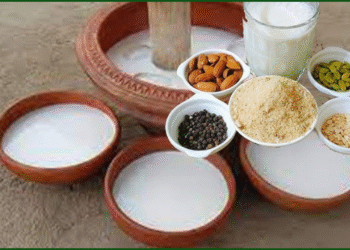High blood pressure, the “silent killer,” impacts millions, heightening heart disease and stroke risks. Simple, steady lifestyle tweaks—like better diet, exercise, and stress management—can significantly lower blood pressure and boost overall health. Incorporating simple daily habits into your routine can help manage and even lower high blood pressure naturally, empowering you to take control of your health.
Start your day with a mindful morning ritual. Just 10 minutes of deep breathing or gentle stretching can reduce stress, a key contributor to elevated blood pressure. Pair this with a heart-healthy breakfast, like oatmeal topped with fresh berries or a smoothie packed with potassium-rich bananas and spinach. Potassium helps balance sodium levels, easing pressure on blood vessels.
Hydration is another unsung hero. Swapping sugary drinks for water or herbal teas not only keeps you hydrated but also supports healthy blood flow. Hydrate with eight glasses daily; try cucumber or lemon-infused water for a crisp, refreshing boost to your routine.A balanced plate includes a quarter of lean proteins like grilled fish or beans and a quarter of whole grains like quinoa or brown rice. Minimize processed foods to reduce hidden sodium and promote healthier eating habits. Limiting caffeine to one or two cups of coffee can also prevent spikes in blood pressure.
Movement matters, but you don’t need a gym membership to benefit. A brisk 20-minute walk during lunch breaks or after dinner can improve circulation and lower blood pressure over time. If walking isn’t your style, try dancing to your favorite music or gardening—both count as moderate exercise that supports heart health.
Mind your plate at every meal. Embrace the DASH (Dietary Approaches to Stop Hypertension) philosophy by filling half your plate with colorful vegetables, a quarter with lean proteins like grilled fish or beans, and a quarter with whole grains like quinoa or brown rice. A balanced plate includes a quarter of lean proteins like grilled fish or beans and a quarter of whole grains like quinoa or brown rice. Minimize processed foods to reduce hidden sodium and promote healthier eating habits. For snacks, reach for unsalted nuts or Greek yogurt to keep hunger and blood pressure in check.
Finally, prioritize sleep. Aiming for 7-8 hours of quality rest each night allows your body to regulate stress hormones and repair blood vessels. Create a calming bedtime routine—dim the lights, skip screens, and sip chamomile tea to ease into slumber.
These habits aren’t just quick fixes; they’re sustainable steps toward a healthier heart. Consult your doctor before making changes, especially if you’re on medication. With consistency, these small tweaks can lead to lasting results, proving that small efforts yield big rewards for your blood pressure and beyond.


















































